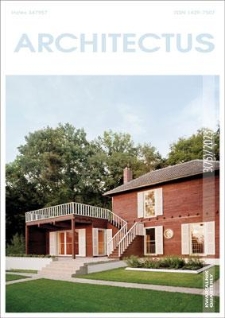Dolnośląska Biblioteka Cyfrowa udostępnia 109 667 obiektów cyfrowych
Obiekt
Tytuł: Briefing with artificial intelligence for requirement elicitation: Three cases with ChatGPT for exploration of possibilities
Tytuł odmienny:
Autor:
Współtwórca:
Opis:
Architectus : Pismo Wydziału Architektury Politechniki Wrocławskiej, 2023, nr 3 (75), s. 93-101
Abstrakt:
Wydawca:
Oficyna Wydawnicza Politechniki Wrocławskiej
Miejsce wydania:
Data wydania:
Typ zasobu:
Identyfikator zasobu:
doi:10.37190/arc230309 ; oai:dbc.wroc.pl:126255
Źródło:
<sygn. PWr A5234III> ; kliknij tutaj, żeby przejść ; www.architectus.arch.pwr.wroc.pl ; kliknij tutaj, żeby przejść
Język:
Powiązania:
Architectus : Pismo Wydziału Architektury Politechniki Wrocławskiej ; Architectus : Pismo Wydziału Architektury Politechniki Wrocławskiej, 2023 ; Architectus : Pismo Wydziału Architektury Politechniki Wrocławskiej, 2023, nr 3 (75)
Prawa:
Pewne prawa zastrzeżone na rzecz Autorów i Wydawcy
Prawa dostępu:
Dla wszystkich zgodnie z licencją
Licencja:
CC BY-NC-ND
Lokalizacja oryginału:
Tytuł publikacji grupowej:
Kolekcje, do których przypisany jest obiekt:
- Dolnośląska Biblioteka Cyfrowa > Uczestnicy Konsorcjum > 01. Politechnika Wrocławska > Czasopisma > Wydane w PWr > Architectus
- Dolnośląska Biblioteka Cyfrowa > Zasoby > 2. Czasopisma > Czasopisma współczesne
- Dolnośląska Biblioteka Cyfrowa > Dziedziny nauki > 2. Nauki inżynieryjno-techniczne
Data ostatniej modyfikacji:
11 kwi 2024
Data dodania obiektu:
11 kwi 2024
Liczba wyświetleń treści obiektu:
110
Wszystkie dostępne wersje tego obiektu:
https://dbc.wroc.pl/publication/165117
Wyświetl opis w formacie RDF:
Wyświetl opis w formacie OAI-PMH:
| Nazwa wydania | Data |
|---|---|
| Briefing with artificial intelligence for requirement elicitation: Three cases with ChatGPT for exploration of possibilities | 11 kwi 2024 |
Obiekty Podobne
Bauer, Julia Dańska, Małgorzata Sitko, Katarzyna Dudycz, Helena. Redaktor
Tuszkiewicz, Maciej Andrzej Maruszewska, Ewa Wanda
Adamiczka, Bartosz
Wrzalik, Artur
Dżega, Dorota Pietruszkiewicz, Wiesław
























